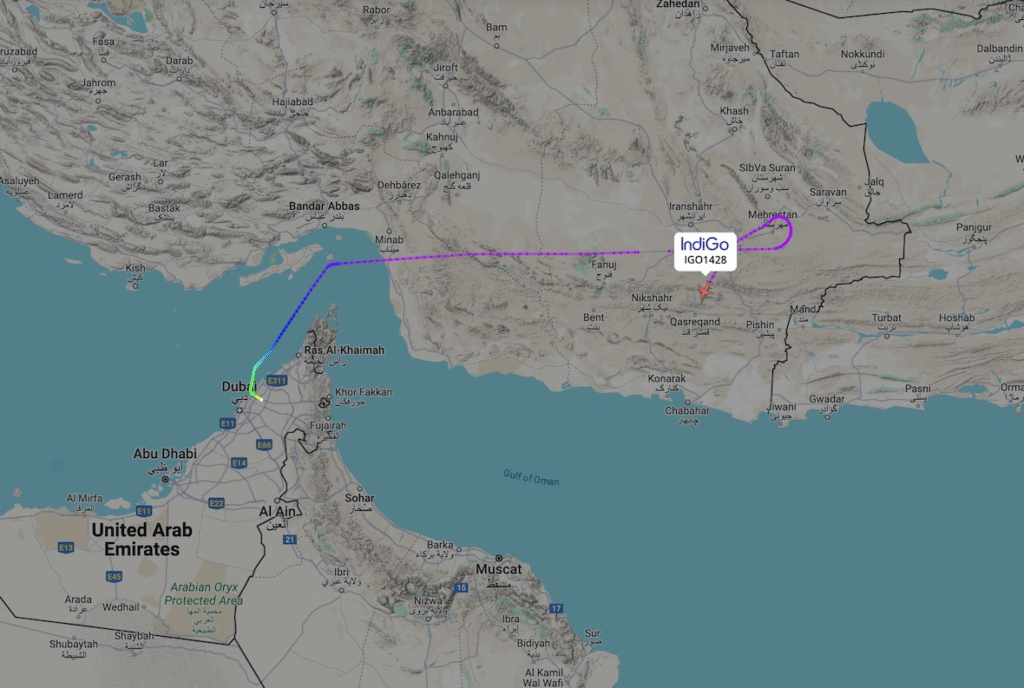India Closes Airspace to Pakistan
India has issued a Notice to Airmen (NOTAM) banning all Pakistan-registered, operated, or leased aircraft, including commercial airlines and military flights, from its airspace.

The restriction, effective from April 30 to May 23, 2025, is a response to Pakistan’s earlier closure of its airspace to Indian airlines.
This tit-for-tat move deepens the rift between the two nuclear-armed neighbors, sparked by a deadly terror attack in Jammu and Kashmir’s Pahalgam. The escalating tensions are raising concerns about regional stability, aviation disruptions, and economic fallout.
A Terror Attack and Diplomatic Fallout
The crisis began on April 22, 2025, when a terror attack in Pahalgam, Jammu and Kashmir, killed 26 people, mostly tourists. India accused Pakistan of backing the attackers, a charge Islamabad denied.
In response, India took drastic diplomatic steps, including suspending the 1960 Indus Waters Treaty and expelling Pakistani diplomats. Pakistan retaliated on April 24 by closing its airspace to Indian airlines, disrupting over 800 weekly flights and costing Indian carriers millions.

India’s NOTAM is a countermeasure, aimed at pressuring Pakistan economically and diplomatically. The move echoes past conflicts, like the 2019 Pulwama attack, when Pakistan’s airspace closure cost it nearly $100 million in overflight fees.
This isn’t the first time the two nations have used airspace as a weapon. In 1971, India banned Pakistani flights during the Bangladesh Liberation War, forcing Pakistan International Airlines (PIA) to reroute over Sri Lanka.
The current standoff, fueled by the Pahalgam attack, has reignited fears of a broader conflict, with both sides trading barbs and military posturing along the Line of Control (LoC). China has called for restraint, while Pakistan’s defense minister hinted at a nuclear response if India escalates further.
Modi’s Strategy
Prime Minister Narendra Modi’s government is taking a tough approach to signal zero tolerance for terrorism. The airspace closure is part of a broader strategy to isolate Pakistan internationally and economically.
By banning Pakistani flights, India aims to hit PIA, already struggling financially, and disrupt Pakistan’s aviation revenue. Modi’s administration is also considering banning Pakistani ships from Indian ports, further tightening the screws.
These measures are seen as a response to domestic pressure for action after the Pahalgam attack, with Modi projecting strength ahead of upcoming elections.
Indian officials, including Civil Aviation Minister K Ram Mohan Naidu, have justified the NOTAM as a reciprocal action. Naidu emphasized that the government is working to minimize disruptions for Indian passengers while assessing the impact on airlines.
The move has sparked debate, with some analysts praising Modi’s resolve and others warning of economic blowback for India’s aviation sector, already reeling from Pakistan’s ban. Social media posts on X reflect polarized sentiment, with Indian users hailing the decision and Pakistani users decrying it as aggression.
Impact on Pakistan Economic and Operational Fallout
Pakistan faces significant losses from India’s airspace closure. PIA, which relies on Indian airspace for flights to Southeast Asia, including Kuala Lumpur and Singapore, will now take longer routes, increasing fuel costs and travel times. In 2019, a similar closure cost Pakistan $100 million in overflight fees, and experts estimate daily losses of $120,000 from India’s ban.

With over 800 Indian flights previously crossing Pakistani airspace weekly, the loss of fees for air traffic control services is a major blow to Pakistan’s Civil Aviation Authority.
Operationally, PIA’s limited fleet and financial woes make rerouting challenging. Flights to Beijing and Kuala Lumpur, already constrained, may face cancellations or reduced frequency.
Pakistan’s economy, already strained, could see ripple effects, with trade disruptions adding pressure. The closure also isolates Pakistan diplomatically, as India’s move signals to the world its unwillingness to tolerate cross-border terrorism.
Pakistani officials have called the NOTAM “provocative,” but their options are limited, given PIA’s reliance on Indian airspace.
Investigations and the Road Ahead
Investigations into the Pahalgam attack are ongoing, with Indian agencies pointing to Pakistan-based militant groups. No concrete evidence linking Pakistan’s government has been made public, but India insists the attack bears the hallmarks of cross-border terrorism.
Pakistan’s denial and counter-accusations of Indian aggression have stalled any chance of dialogue. The NOTAM, while temporary, could extend if tensions persist, as seen in 2019 when Pakistan’s closure lasted five months.
The airspace war is costing both nations. Indian airlines like Air India and IndiGo face $307 million in monthly losses from Pakistan’s ban, with longer routes and fuel stops in Vienna and Copenhagen.
India’s NOTAM will likely raise fares and disrupt travel for passengers on both sides. Analysts warn of a dangerous escalation, with military skirmishes along the LoC and heated rhetoric fueling fears of a wider conflict. For now, Modi’s hardline stance and Pakistan’s defiance suggest no immediate resolution, leaving the region on edge.


 ICCI invites Bangladesh to boost investment in Pakistan
ICCI invites Bangladesh to boost investment in Pakistan  US and Pakistan Seal New Trade Deal with Promises and Oil
US and Pakistan Seal New Trade Deal with Promises and Oil  India Set to Face Pakistan in WCL Semifinal
India Set to Face Pakistan in WCL Semifinal  Pakistan Joins WHO to Provide Free Cancer Medicine to Children
Pakistan Joins WHO to Provide Free Cancer Medicine to Children  Trump’s $21M USAID Claim for India Elections Never Existed
Trump’s $21M USAID Claim for India Elections Never Existed  Did India Strike Pakistan’s Nuclear Hub Kirana Hills?
Did India Strike Pakistan’s Nuclear Hub Kirana Hills?